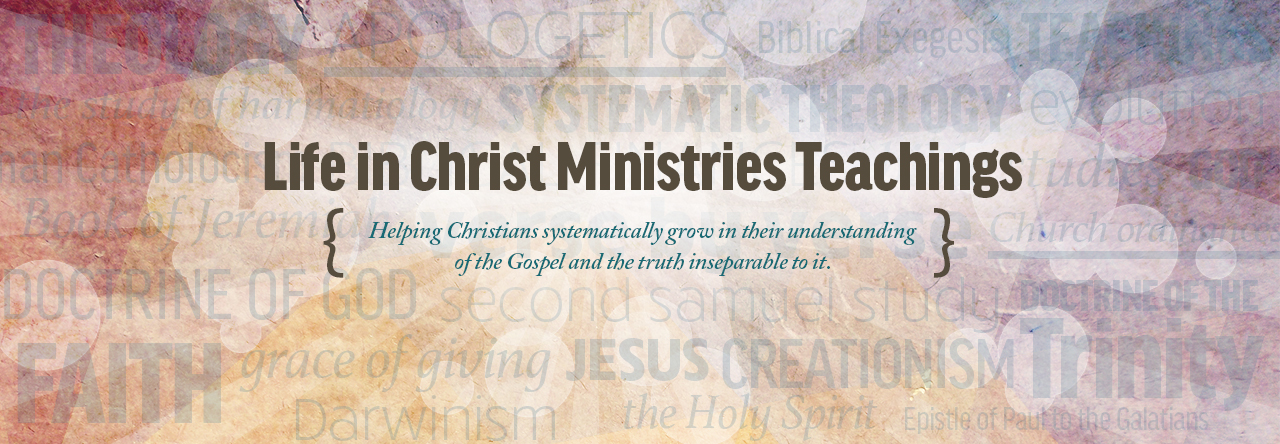In our previous Why Am I Here? (The Answer) daily teaching we saw how, according to to the Genesis account, mankind was created to image God (Gen. 1:26a). But there’s still plenty more to see. So, as we make our way to the ultimate reason for man’s existence we will first continue to survey the opening chapter of God’s Word, looking back to the initial revelation of man’s creation to understand why we are here. We pick up today in the second half of Genesis 1:26.
Category: Why Am I Here? (Page 1 of 3)

An Early Explanation for Man
26 Then God said, “Let Us make man in Our image, according to Our likeness; let them have dominion over the fish of the sea, over the birds of the air, and over the cattle, over all the earth and over every creeping thing that creeps on the earth.” 27 So God created man in His own image; in the image of God He created him; male and female He created them. 28 Then God blessed them, and God said to them, “Be fruitful and multiply; fill the earth and subdue it; have dominion over the fish of the sea, over the birds of the air, and over every living thing that moves on the earth.”

There Must Be More Than This
Some years back 60 Minutes did a piece on Tom Brady, the Super Bowl winning quarterback of the New England Patriots, entitled “Tom Brady: The Winner.” The idea of the segment was that he would discuss both his career as well as other aspects of his life. At one point during the interview, the CBS News correspondent prefaced a portion of his forthcoming video interview by saying,

Imagine that you just graduated from a Masters’ degree program and received a promotion at work as a result, and someone asked you, ‘What does it matter?’ with reference to your graduation and promotion. You might be taken back by the brashness of their question but you’re a polite person so you respond by saying, ‘Well, it helped to equip me to do my job better and now, as a result of taking a position of greater responsibility, I take home more money to benefit my family.’ You think you hit their underhanded, off-speed, softball pitch of a question out of the park. But they don’t. Unmoved, they unleash a series of existential questions with more than hint of nihilism to boot: ‘So what? What does it really matter if you do your job a little better and bring home a little more money? So you make someone’s day potentially a wee bit brighter? Eventually darkness will set in and your ‘momentary brightness’ will be eclipsed and forgotten by the pain of life’s tragedies. And what exactly does a little bit more money do for your family? Add a little bit more activity, entertainment, and comfort to your fleeting life? You won’t even remember 1% of it when you’re on your deathbed and neither will those you spent that time with.’ It’s at this point you realize why this person doesn’t have many friends. He lacks a filter but he is asking questions that demand an answer. In the final analysis, what profit is there in wisdom – whether it be intellectual or moral?

So I became great and excelled more than all who were before me in Jerusalem.
Considering all that Solomon wrote prior to this verse, fame would be the seemingly inevitable outcome. Nevertheless, he made the point, even as he did earlier – “I became great” (2:9a; cf. 1:16). Having surpassed his predecessors in wisdom, works, and wealth, he also surpassed them in magnificence and as a result he became a titan of notoriety. Yes, the geographical reference of Eccl. 2:9 is limited to Jerusalem, but the reverberations of Solomon’s fame spread well beyond Israel’s capital. The Queen of Sheba, for instance, “heard of the fame of Solomon” (1 Ki. 10:1) and came from “the ends of the earth” to hear his wisdom (Mt. 12:41). Perhaps this is where the previous conclusions of meaninglessness would give way to that which is meaningful. Perhaps the vanity of pleasure and possessions was a poor substitute for the worthy endeavor of a celebrated perception. Not quite.












